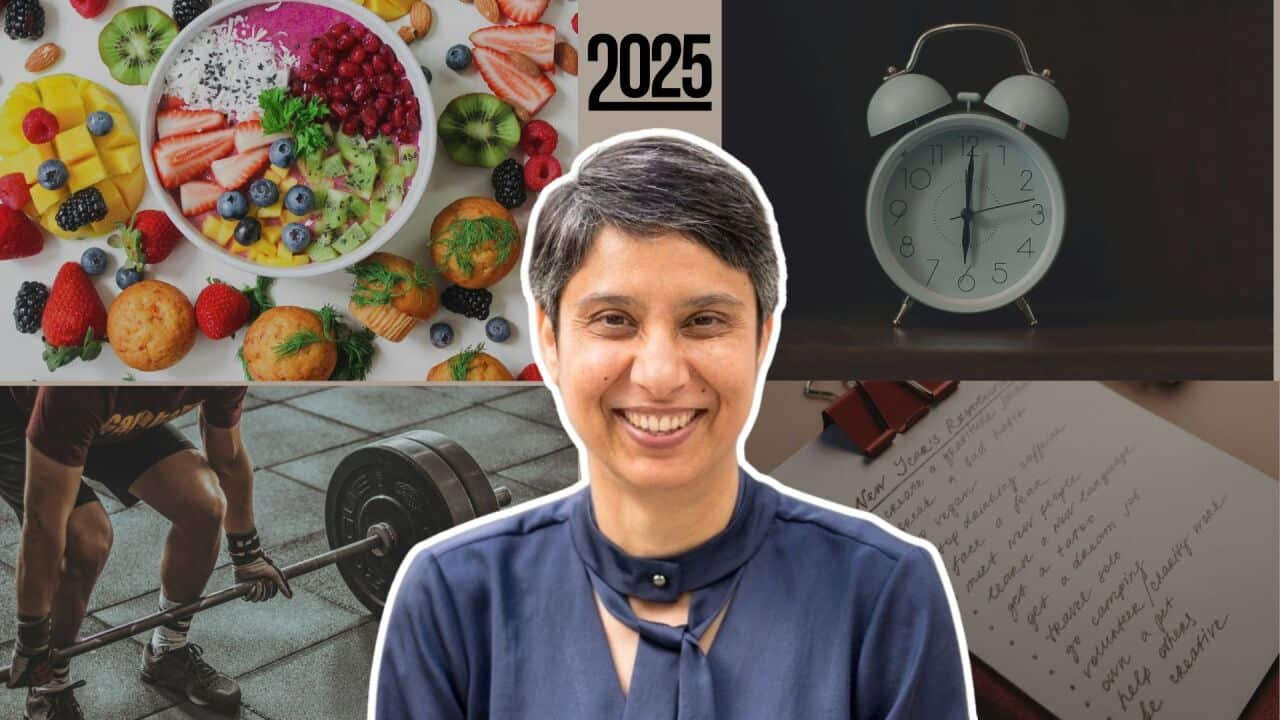A significant number of people, including international students and temporary migrants, are needing to take the English language proficiency test PTE multiple times before they can secure the required score to apply for permanent residency in an English speaking country.
While Sasha Hampson, the Head of English for Asia Pacific at the Pearson's Test of English, told SBS Punjabi that "fewer than 1 per cent" of all candidates taking PTE for the purpose of migration sit the test 30 times or more, she declined to reveal the total number of people taking the test in a year, calling it “commercially- sensitive information”.
However, an expert believes the number of people sitting the test over 30 times could be in hundreds, if not thousands.
"Repeated failure demolished my self-respect"
Sydney resident Shirin Lakhani came to Australia in 2008 from the south Indian city of Hyderabad to do a second master's degree in accounting. She told SBS Punjabi that she sat IELTS (International English Language Testing System) 33 times and spent $11,000 on fees alone before she was finally able to attain the score required to apply for her Australian permanent residency.
Now an Australian citizen, she says her repeated failure in the test caused immense damage to her self-esteem and mental state. She said there are many migrants caught up in this situation.
“I have seen students go back home because they couldn’t get the requisite score in IELTS. Their parents who struggled so much back in India, took loans for their children, are also devastated,” she said.
Shivi Bhalla, who runs EnglishWise - a coaching institute to train people for such English language proficiency tests - says in his “conservative estimate”, at least 100,000 people sit the test every year, and going by that estimate, several hundred people could be taking the test over 30 times.  He says, maybe, a flaw in the computer-based scoring system could be one of the reasons for applicants to retake the test.
He says, maybe, a flaw in the computer-based scoring system could be one of the reasons for applicants to retake the test.

Shivi Bhalla lays more emphasis on proper preparation for IELTS and PTE, than attempting them repeatedly without it. Source: Facebook/Shivi Bhalla
"I feel there definitely can be a flaw. Although the scoring pattern of these tests is published on their websites, a detailed marking report should be made available to students so that they know how they've performed and what they've got. This will clear their confusion on why they couldn't get what they wanted," says Mr Bhalla.
“There are some aspects in these tests that remain unknown, so we can’t say with certainty why a candidate didn’t get the desired result. For instance, in PTE, when some candidates get 90 out of 90, I often wonder, if there’s a flaw in the scoring system because getting a perfect score in a language test is odd,” he says.
Try, try till you succeed
Barring one, all of the permanent residency aspirants SBS Punjabi spoke with, were unable to get the requisite marks in IELTS or PTE in their first attempt. Most of them said they had been unsuccessful in getting their required score despite taking the test many times.
PTE being the preferred English language proficiency test these days, sees a lot of “returning customers” who feel the need to take the test till they get the marks that can enable them to lodge their permanent residency application.
However, the company that operates the PTE dismisses any suggestions that test-takers are deliberately awarded less than the required score.
"Pearson is not aware of the specific score the test taker is trying to achieve. Furthermore, each test attempt is scored separately and there is no connection in the scoring from one test attempt to another,” Ms Hampson, Pearson's Head of English for Asia Pacific, said. IDP, the organiser of IELTS, also dismissed these suggestions.
IDP, the organiser of IELTS, also dismissed these suggestions.

Source: Getty Images
"The applicant’s information is anonymised when the test is presented for marking. Likewise, examiners in the speaking test do not see a test taker’s application form. Any suggestion that examiners know a test taker’s desired score and consider this as part of marking is simply not accurate,” Warwick Freeland, Managing Director of IELTS at IDP Education said.
Mr Bhalla, who came to Australia as an international student in 2010 and has since authored a book, Studying in Australia – The ultimate guide to settling in, finding and job and Permanent Residency in Australia, says preparation is the key to success.
He lays a lot of emphasis on a candidate’s understanding of the dynamics of English proficiency tests, proper coaching and their state of mind on the day of the test, rather than frequently rebooking the test - something the test organisers also strongly advise against.
Many test-takers also say they are confounded by their performance reports which they claim seem to have been simply jumbled up for different modules, compared with their previous attempts.
Mr Bhalla tends to concur with the confusion amongst some candidates about their good performance in a module in the previous attempt and it nosediving in their latest attempt.
“Sometimes a student repeatedly misses the desired outcome by only one mark in a module. The next time, this student gets the required score in that module but fails in another module. I wonder what the basis of that could be and how confident is Pearson that the test marking is always fair and free of major flaws,” he questions. Based on his experience of having coached thousands of students over the years, Mr Bhalla confidently recalls that "thousands" of IELTS candidates reported to him that they missed the required band by half a mark.
Based on his experience of having coached thousands of students over the years, Mr Bhalla confidently recalls that "thousands" of IELTS candidates reported to him that they missed the required band by half a mark.

Proposed Citizen's English Test Source: IELTS
"This is why PTE has gained popularity in the past few years because it is seen as more objective and I feel, easier to score in, provided the test has been attempted properly," he elaborates.
However, he stressed that a major contributing factor for a candidate’s success is this "proper preparation" before sitting for the test.
“We’ve observed that most students who repeatedly appear for IELTS or PTE are more eager to book their next test date than give their all in preparing for the current test. They often begin by appearing for it without any coaching or by borrowing study material off their friends who have appeared for it,” observed Mr Bhalla.
Click on the player in the picture at top to listen to feature in Punjabi.






